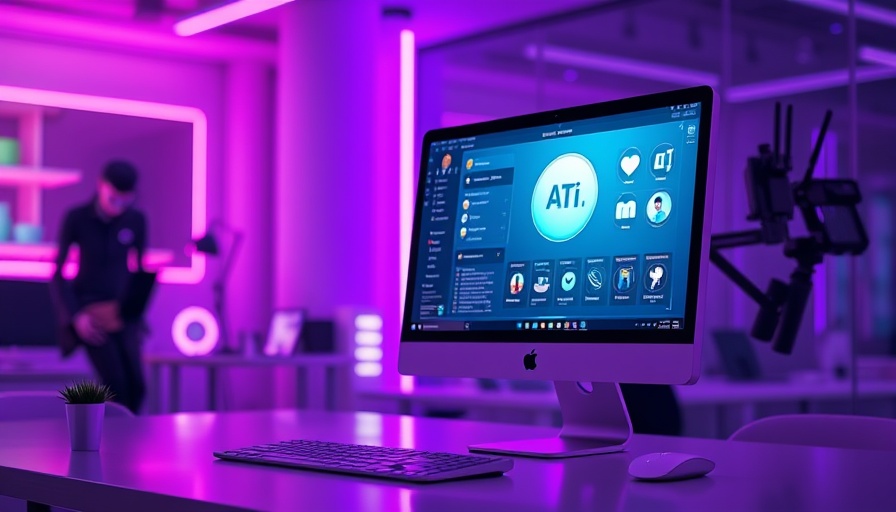
The Future of Digital Assistance: Amazon’s Nova Act
In a groundbreaking move, Amazon has launched Nova Act, an innovative AI agent designed to navigate the web and perform various tasks—ranging from shopping to handling organizational responsibilities. This autonomous tool is poised to revolutionize how users interact with digital platforms by streamlining processes that typically require human intervention.
This vs. That: Comparing Nova Act with Competitors
While other tech giants, including Anthropic, OpenAI, and Google, have introduced similar offerings, Amazon asserts that Nova Act stands out due to its enhanced autonomy. AI models like Anthropic’s “computer use” require constant human oversight to complete complex tasks. In contrast, Nova Act allows for single task execution without the need for continuous supervision, making it a more versatile solution.
Breaking Down Complex Tasks into Simplicity
The structure of Nova Act enables developers to create simplified workflows where complicated processes are broken down into manageable tasks. For instance, users can instruct the AI agent to search, shop, and check out without needing a step-by-step tutorial. This modular approach allows the agent to perform reliably and intuitively, catering to a broader audience who may not have technical expertise.
Operational Efficiency: The Transformative Power of AI Agents
The launch of Nova Act signals a shift towards increased operational efficiency through AI technology. By automating shopping experiences—like ordering a specific salad every Tuesday night without needing direct guidance—Amazon demonstrates the practical implications of AI in everyday life. Users benefit from convenience while businesses might see increased engagement due to user-friendly interface adaptations.
Social Implications: What This Means for Consumers
The introduction of AI agents raises questions about social interactions and dependencies on technology. As assistant bots like Nova Act take on more responsibilities, users might find themselves relying heavily on automation for daily tasks, impacting personal agency. It’s essential to strike a balance, ensuring technology enhances rather than detracts from human capabilities and judgment.
Looking Ahead: The Future of AI Agents
As the landscape of AI develops, the relationship between users and AI agents will be crucial to observe. Nova Act represents merely one advancement; the future is likely to introduce even more sophisticated agents capable of handling more complex demands. Insights from leading tech figures, like Rohit Prasad of Amazon, assert that AI needs to evolve to actively execute tasks for users, further pushing the boundaries of our digital engagements.
Final Thoughts: The Road Ahead for Consumers and Developers
Amazon's venture into AI agents invites wider discussions on user experience, digital autonomy, and the ethical implications of technology. Consumers might find themselves in a brave new world where intelligent systems enhance their daily routines significantly. For developers, the SDK accessible through nova.amazon.com marks an exciting frontier for exploration and innovation in AI solutions.
Now is the time for consumers and businesses alike to embrace this new era of AI. With tools like Nova Act, not only can routines be transformed, but the foundation is laid for the future of how we interact with technology.
 Add Row
Add Row  Add
Add 




 Add Row
Add Row  Add
Add 

Write A Comment